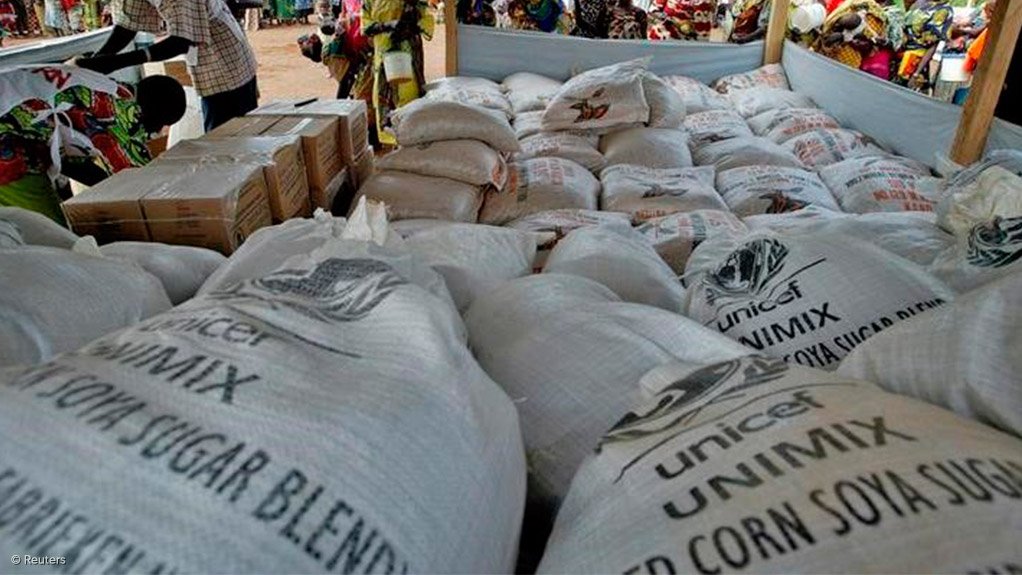United Nations Women, one of the UN agencies in South Africa, is concerned that problems with accessibility to food may result in massive default among people who need to take antiretroviral (ARV) treatment, and contribute to a high COVID-19 infection/mortality rate among people living with HIV – the majority of whom are women. The pre-existent condition and stopping taking their treatment make people living with HIV one of the high-risk groups during the COVID-19 pandemic.
To prevent this high infection/mortality rate, United Nations Women this week started a national initiative in partnership with the Southern African Catholic Bishops’ Conference (SACBC) Justice and Peace Commission, to address food security concerns and treatment adherence for people living with tuberculosis and HIV.
This initiative by United Nations Women seeks to strengthen the interventions that it has made in previous years to improve prevention of HIV among girls and young women in informal settlements as well as ARV treatment adherence support for those living with HIV.
The intervention of United Nations Women is part of a broader campaign by various United Nations agencies in SA to support 9.9 million people with the COVID-19 response.
United Nations agencies in South Africa have launched a joint flash appeal, called Emergency Appeal on the Impact of COVID-19 in South Africa, which is aimed at raising US $136 million to support government efforts to reach vulnerable and marginalised communities to address the impact of COVID-19.
The United Nations Resident Coordinator Nardos Bekele-Thomas said: “Helping South Africa especially at this time makes development sense and it also makes business sense. We focus on the most vulnerable groups. They have potential to be producers and, with disposable income, they will become consumers, investors and productive assets for the economy.”
During the launch of the campaign on 30 April the Minister of Health Zwele Mkhize welcomed the United Nations plan, which will complement national efforts and focus on the needs of vulnerable communities, including people living with HIV and tuberculosis, migrants and refugees, vulnerable women and children, key populations and millions affected by poverty, unemployment and the impact of national restrictions on trade and movement since 26 March.
“We have various issues of inequality, unemployment, poverty and densely populated areas and chronic overcrowding in our metros, which are the most affected by COVID-19. We have already started to see local transmissions in these areas, which has given us cause for concern,” he said.
EMAIL THIS ARTICLE SAVE THIS ARTICLE ARTICLE ENQUIRY
To subscribe email subscriptions@creamermedia.co.za or click here
To advertise email advertising@creamermedia.co.za or click here











